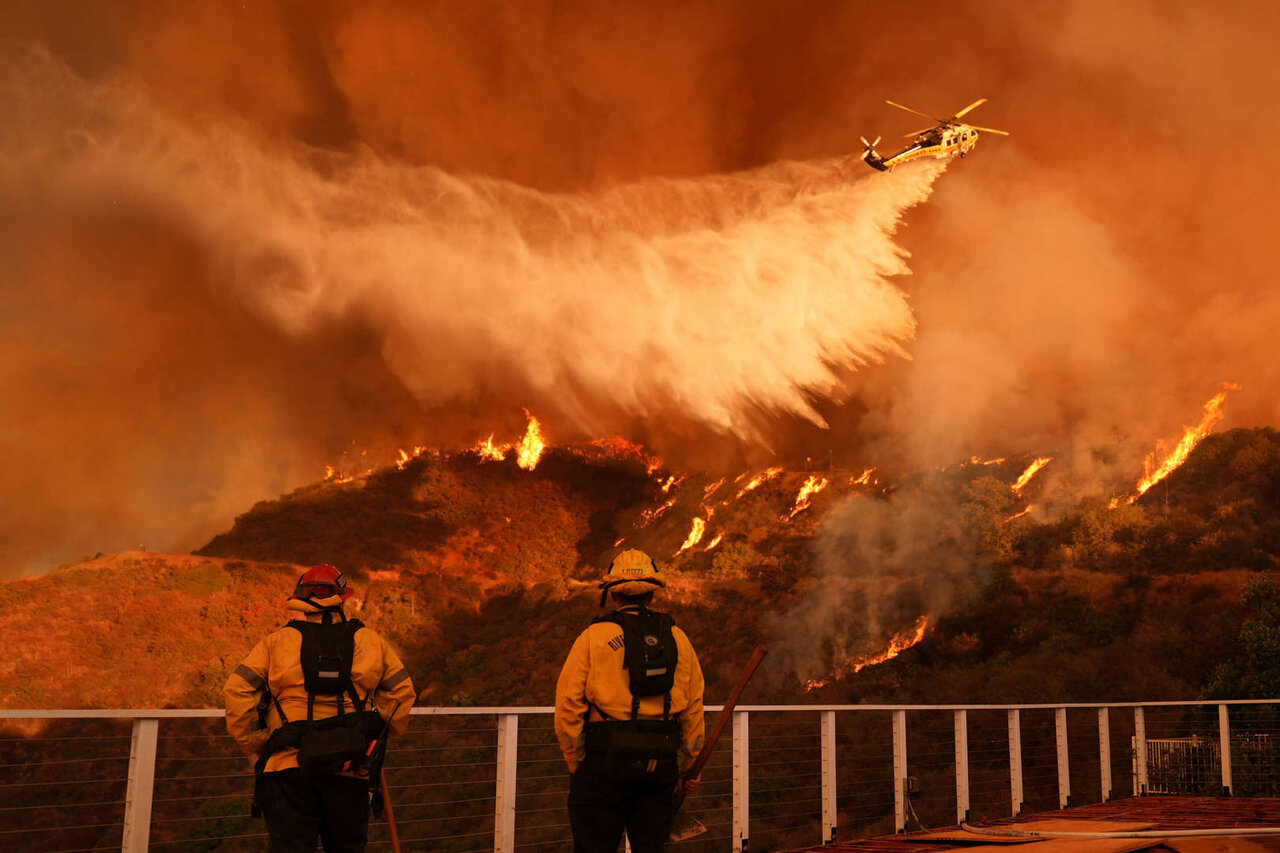Iranian Interests Section in Washington offers support to nationals impacted by California wildfires

TEHRAN – The Iranian Interests Section in Washington, D.C., has announced its readiness to assist Iranian nationals affected by the devastating wildfires that have swept through southern California.
In a statement released earlier this week, the office expressed deep sympathy for those impacted and pledged to provide urgent consular services to support the affected community.
The message, addressed to the Iranian diaspora in California, highlighted the widespread destruction caused by the fires, which have displaced thousands and left many struggling to rebuild their lives. The Interests Section emphasized its commitment to standing in solidarity with those suffering from the disaster.
The statement further announced that the office is fully prepared to provide expedited consular services to assist affected individuals. These services include issuing new passports, replacing lost or damaged birth certificates, and providing other essential identity documents.
“We extend our heartfelt solidarity to our compatriots impacted by this tragedy,” the statement read. “The Interests Section of the Islamic Republic of Iran in Washington reaffirms its commitment to supporting the Iranian community during this challenging time and stands ready to offer all possible assistance promptly.”
The office encouraged affected individuals to contact them directly to access these services and assured them of prioritizing their needs.
The wildfires in southern California have caused extensive damage to homes, businesses, and infrastructure, leaving many residents in urgent need of assistance. At least 16 have died in the fires that burned in the greater Los Angeles area, according to NBC News. It has scorched 39,622 acres, which is 62 square miles, and destroyed more than 12,300 structures, according to Cal Fire.
More than 153,000 residents of impacted areas are under mandatory evacuation orders.
There are about 400,000 Iranian-born immigrants in the United States, and more than a third of them live in the Los Angeles metropolitan region, according to data from the Migration Policy Institute.
Leave a Comment